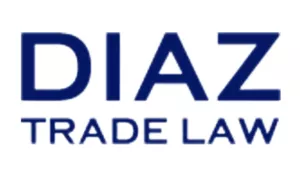The Bureau of Industry and Security (BIS) issued new guidelines to assist deemed export applicants in obtaining licenses. The guidelines primarily apply to employment situations; however, they also address other situations such as the release of controlled technology to foreign students participating in research.
The guidelines cover basic requirements for applying and renewal and include an application checklist.
Background on Licenses for Deemed Exports/Reexports
The obligation to obtain an export license from BIS before releasing controlled technology to a foreign person is informally referred to as a "deemed" export. The release is considered an export to the person's country or countries of nationality.
The Export Administration Regulations (EAR), Section 734.13, defines a deemed export as releasing or otherwise transferring "technology" or "source code" to a foreign person in the United States.
Typical organizations using deemed export licenses include universities, research institutions, bio-chemical firms, medical organizations, and computer companies.
New Guidance
The basic guidance for filling out license applications is set forth in Supplement 1 to part 748 of the EAR. The new guidelines supplement the basic guidance and are intended to assist licensing officers in reviewing license applications more efficiently.
Basic Requirements
The guidelines reiterate that applicants must include all the necessary information and documentation required when submitting a license application. BIS will return applications with insufficient information.
Basic documentation required:
- Legible copies of passport, visa, and work authorization
- Letter of Explanation (LOE)
- Resume
- Technology Control Plan (TCP)
SNAP-R Best Practices
SNAP-R is an electronic portal facilitated by BIS that allows individuals and organizations to process and track license applications. The guidelines provide best practices when submitting an application through this portal including:
- Do not use acronyms
- Do not list a P.O. box for required address
- Include a detailed description of the end-use of the technology
- Identify the technology by its Export Control Classification Number (ECCN), not by its trade name
Letter of Explanation
Applicants must submit a separate letter of explanation (LOE) when submitting an application. According to the guidelines, the LOE should include:
- Copies of the foreign person's valid passport
- The address where the technology will be released
- A description of all uses and applications for the technology
- The form in which the technology will be released
- The availability abroad of comparable foreign technology
Resume
The license application must include a complete resume of the foreign person. The resume information is considered in the application process to assess the risk that the technology in question could be diverted to unauthorized uses or users.
The resume should include:
- Personal background information
- Educational and vocational background
- Employment history
- Research history
- Military service
- Special information (any special considerations that BIS should take into account)
Review of Deemed Export Applications
BIS's policy is to approve deemed export license applications provided that there is no unacceptable risk that the technology will be diverted to unauthorized users and that the applicant agrees to comply with the applicable conditions on the license.
The content of this article is intended to provide a general guide to the subject matter. Specialist advice should be sought about your specific circumstances.


